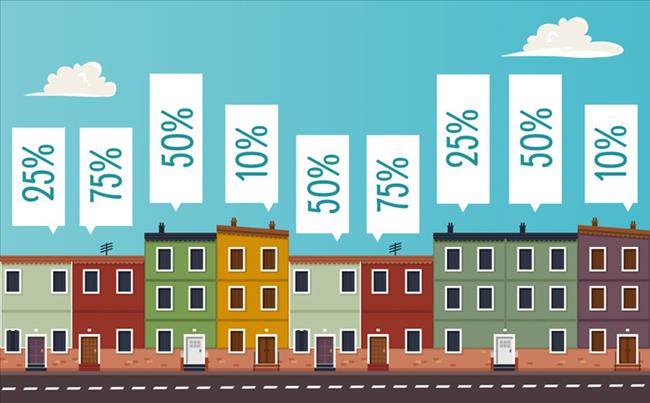
Property valuation is a tricky process that involves complex formulas, thorough checklists and a keen eye for aesthetics. Realtors and appraisers would tell you that valuation is all about location.
While this claim does hold some truth, there are many other factors that need to be considered. If you’re looking to invest in property, understanding the process of valuation will be a huge advantage.
Are you paying too much for your condo? Does the location justify the price? What else should you be looking out for? Here’s a useful introduction to property valuation to give you a headstart in your property investment journey.
Market Comparison
If formulas are a little too complex, you can run a comparison of your target property’s value based on recent sales of similar properties in the area. Before you go ahead and list out every property in the location, be sure to take note of these criteria.
-
Is the property within 1 kilometre of your target?
-
Did the sale take place in the last 3 months?
-
Is the quality of the property similar to your target?
-
Does the property have a similar size and number of rooms as your target?
Once you’ve identified a few properties for comparison, be sure to provide some allowance for properties that are more/less superior in terms of building quality and location. This will give you a good range of values.
Income Approach
One of the most common ways to establish the value of your target property is through the Income Approach. This involves identifying the potential annual net operating income generated from the property, divided by the property’s capitalisation rate.
Annual Net Operating Income (NOI) = Market Value of Property
Capitalisation Rate
You can take a look at similar properties in the area to find an average capitalisation rate. For instance, 3 properties in the area were sold at $1 million, $1.2 million and $0.9 million respectively. Owners then went on to rent the properties for an annual net operating income of $50,000, $65,000 and $40,000 respectively.
Property A capitalisation rate = 50,000 / 1,000,000 = 0.05 (5%)
Property B capitalisation rate = 65,000 / 1,200,000 = 0.054 (5.4%)
Property C capitalisation rate = 40,000 / 900,000 = 0.044 (4.4%)
Average capitalisation rate = ( 5% + 5.4% + 4.4% ) / 3 = 4.9%
Based on the average capitalisation rate of the 3 properties, you will be able to determine the value of your own property using the Income Approach formula.
Capital Asset Pricing Model
For savvy investors that are focused on profits and return of investment (ROI), the Capital Asset Pricing Model (CAPM) is one of the more comprehensive approaches to property valuation. This model takes into account the cost of risk and opportunity associated with real estate. The result tells you the expected rate of return from your property investment. Here’s the formula for the CAPM:
Rp = Rf + β(Rm-Rf)
Rp: Expected rate of return of your target property
Rf: Property with zero risk
β: The risk measure (rate of sensitivity of your target property to the Market)
Rm: Expected rate of return of the Market
The Market here usually refers to the industry in question, in this case, global real estate indices. Read more about CAPM here.
Common Mistakes
A holistic approach is most ideal when assigning a value to your property. Attaining the necessary numbers and figures may be time-consuming, but the profits could outweigh the cost if you chance upon an undervalued property.
It is important to remain impartial to influence from agents, media, emotional attachment and hearsay. Even if your target property is priced higher than its competitors, they could be prone to lower risk or have a higher return of investment. Stay focused on your target property and base your decision on facts and data. Contact our after sales service, Plus Property, for assistance with valuations.